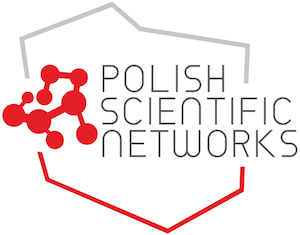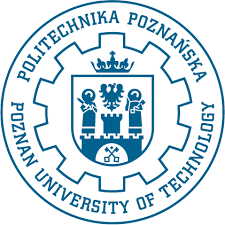Committees
Scientific Committee
- Matt C. Strzelecki
- Izabela Sówka
- Monika Kędra
- Anna Moniuszko
- Magdalena Budziszewska
- Jakub Małecki
- Krzysztof Swierkosz
- Malgorzata Werner
- Michał Czepkiewicz
- Bartosz Czernecki
- Adam Choryński
- Marzena Smol
Organizing Committee
AMU Team
- Matt C. Strzelecki (Chair)
- Marta Gmurek
- Miłosz Kadziński
- Jacek Kolanowski
- Piotr Kuświk
- Monika Kwoka
- Karol Palka
- Jan Poleszczuk
FNP Club
- Katarzyna Starowicz
Local (Wroclaw) team
- Iwo Wieczorek (secretary)
- Patrycja Matusz
- Aleksandra Wołoszyn
- Natalia Pilguj
- Aleksandra Kolanek
- Michał Halicki
- Zofia Owczarek
Organizers
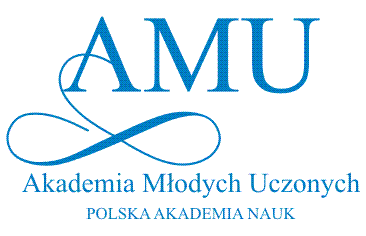
The Polish Young Academy (PYA) was constituted under the Polish Academy of Sciences (PAS) Parliamentary Act of April 30, 2010. It is a part of the PAS corporation and was established thanks to the effort of the PAS authorities inspired by the activity of similar bodies in other countries.One of the PYA’s tasks is to promote the activation of the young scientific community, in particular:
• participating in the formation of science policy
• promoting scientific excellence
• disseminating scientific results.
Selection procedure of the PYA members is based on the election procedures for the PAS members, main criterion being the candidate’s outstanding scientific achievements. PYA members are nominated for 5 years, without a possibility of re-election. Each PYA member can contribute to the work of the PAS by participating in the work of divisions, branches, scientific committees and task force committees.
PYA is formed by leaders in respective scientific domains – scientists that have typically already been honoured with other prestigious awards and distinctions, including recipients of the European Research Council grants, the Ministry of Science and Higher Education Scholarships or the Foundation for Polish Science programmes. Despite their young age, many of them have already been appointed or awarded a professor title.
PYA is actively involved in consultations regarding science and higher education policy, including “Law 2.0”. PYA was represented in the Council of the National Congress of Science (NCS) and participated in the NCS conferences. Members of PYA were also involved in consultations conducted by the Policy Support Facility, a group assigned by the Ministry of Science and Higher Education with a peer review of Poland’s higher education and science system, and in consultations regarding programmes supporting internationalization of Polish science, proposed by the newly founded National Agency for Academic Exchange.
In an effort to promote scientific excellence, PYA supports the mobility of Polish scientists. This activity is illustrated e.g. by the report on national and foreign mobility of scientists, published in 2015 in cooperation with “Nauka Ludzka Rzecz” Initiative. Cooperation and mobility of scientists was also the main topic of the 1st edition of Polish Scientific Networks conference (PSN, Warsaw, June 16 -18 2015), organized, as well as the next editions, in cooperation with the Ministry of Science and Higher Education and the Association of the Foundation for Polish Science Scholars. PYA also cares about building competence of young scientists. For that purpose, PYA organizes annually summer schools Forge of Young Talents (Kuźnia Młodych Talentów) addressed to PhD students specializing in life and exact sciences and developing so called soft skills.
In order to encourage new generations to practice science, PYA actively supports its popularization. For many years, PYA members have been taking part in Science Festivals in different Polish cities, in Warsaw Science Picnic, in European Researchers’ Night in Olsztyn, etc. PYA has also initiated Flying Scientific Cafes (Latające Kawiarenki Naukowe), popular science meetings that are mainly addressed to children and school youth.
Since January 2022, PYA counts 35 members. More information: http://www.amu.pan.pl/
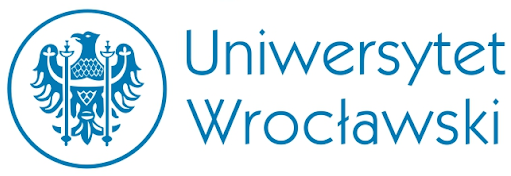 At the University of Wrocław – under the watchful eye of 2 thousand academic teachers, including more than 450 professors, also from abroad – knowledge is being acquired by 25 thousand students, doctoral students and post-graduate students. Every year, 8,000 graduates leave the university. Many of them had an opportunity to gain experience also outside Poland. Thanks to the University of Wrocław’s membership in global student exchange programmes and networks (including Erasmus+ and ISEP), our students can pursue education, among others, in the United States, Germany, Great Britain, Austria, France, Spain and Belgium.
At the University of Wrocław – under the watchful eye of 2 thousand academic teachers, including more than 450 professors, also from abroad – knowledge is being acquired by 25 thousand students, doctoral students and post-graduate students. Every year, 8,000 graduates leave the university. Many of them had an opportunity to gain experience also outside Poland. Thanks to the University of Wrocław’s membership in global student exchange programmes and networks (including Erasmus+ and ISEP), our students can pursue education, among others, in the United States, Germany, Great Britain, Austria, France, Spain and Belgium.
Our students can gain not only theoretical knowledge, but also the practical skills needed to start a professional career. We do this with the help of businesses and potential employers of our students and graduates,cooperating with the University of Wrocław.
At the University of Wrocław, which is also a prestigious research centre, several thousand scientific publications are published every year, we also run several hundred projects. A lot of the research programmes are carried out in cooperation with foreign partners. The results of our research are regularly published in prestigious magazines, including “Nature”. For people with broad interests, exceeding the traditional division into academic disciplines, we have prepared Individual Interdisciplinary Studies, for which the curriculum is each time prepared according to the interests of a given student. Bearing in mind the needs of secondary-school graduates and the changing labour market, every year we introduce new courses and specializations.
The University of Wrocław is one of the leading Polish universities chosen by foreign students, and from year to year their number is increasing. There are currently almost 1500 foreigners studying with us. The most numerous groups come from India, Ukraine, Turkey, Azerbaijan and Uzbekistan. Our foreign students represent in total more than a hundred nationalities and very different cultural backgrounds. They successfully integrate with other students through joint activities. They gladly volunteer and take part in various projects (among them, an international orchestra and a football team operating at the university).
The University of Wrocław consists of more than 50 buildings, most of which are located in the city centre and concentrated around five campuses. They include both historic buildings, located on the tourist routes of Wrocław (such as the main building and the buildings on the square and in Nankiera Street), as well as modern buildings, with extensive equipment, meeting global standards and perfectly adapted to scientific and educational needs (e.g. educational and research Biotechnology complex, new seat of the University Library).
The University of Wrocław also includes:
- Botanical Garden in Wrocław and Arboretum in Wojsławice
- The Polar Station in Spitsbergen
- Astronomical Observatory in Białystok
- Meteorology and Climatology Observatory in Wrocław
- “Storczyk” Environmental Station in Karpacz
- Ornithological Station in Ruda Milicka
The history of the university and the accomplishments of its researchers over the years are on display in five museums, in the University Archives and the University Library, one of the largest libraries of its type in Poland (we have 4 million volumes, the third largest collection of old prints pressed between 1456-1800 in Europe, as well as the first prints of Mozart’s works and Beethoven’s manuscript).
The Confucius Institute operates at the University of Warsaw, organizing Chinese language courses and meetings with Chinese culture and tradition. It’s one of only four such centres in Poland. An interesting interdepartmental, interdisciplinary facility is the Centre for German and European Studies named after Willy Brandt, which is part of a network of institutions supported by DAAD (German Academic Exchange Centres). There are also many laboratories, clinics and language schools operating at our university, providing services to external companies, institutions and organisations. We regularly hold lectures in the scope of popular science, demonstrative classes and courses for secondary-school students, we are a co-organiser of the Lower Silesian Science Festival. We’ve been open to seniors for a long time. With them in mind, back in 1976 we established the University of the Third Age, which continues to be extremely popular.

ASSOCIATION OF THE FOUNDATION FOR POLISH SCIENCE (FPS) SCHOLARS unifies laureates of postdoctoral scholarship programmes of the Foundation for Polish Science. Among the Association’s aims are the interdisciplinary and intergenerational integration of FPS Scholars, actions aimed at supporting science and popularizing the ethos of a scientist and teacher, promoting of good scientific practice and improving qualifications, as well as supporting scholars in critical situations.
The Association, initially named Association of the Foundation for Polish Science Foreign Scholars, was founded in 2000, during a meeting organized by the Foundation for Polish Science attended by laureates of the Foundation postdoctoral scholarship programme KOLUMB. Initially, the Association was established as an informal group of young scientists, whose postdoctoral training in foreign research centres was financed by the Foundation. In April 2003, the Association was officially registered as an association. In December 2009 the Association, following the establishment of different postdoctoral scholarship programmes of FPS, was joined by laureates of several other Foundation programmes, such as Homing (later replaced by Homing-Plus), Focus, Ideas, Team, Master, Welcome, and – in May 2014 – by the laureates of the programme Bridge, who have completed at least 6 months long fellowship in a foreign research centre. Since May 2016, laureates of all types of TEAM programmes are also welcomed among FPS scholars. At the same time, in 2009, the association was renamed as the Association of FPS scholars.
The Association’s activity manifests mainly in the organization of meetings and conferences, both informal and formal, that support scientific cooperation – interdisciplinar, international and intersectorial, including the series of Polish Interdisciplinary Symposia Inter-Mix and the Polish Scientific Networks conference, that addresses scholars interested in applying research in practice. Every year, in May members of the Association meet during the Annual Alumni Congress, organized in different academic centres in Poland. The Congresses are an excellent occasion for the presentation of most recent research results, scientific discussions, as well as to maintain contacts and friendships. Additionally, members of the Association have been engaged in the debate about the reorganization of science in Poland for many years, as part of advisory bodies or as experts in panels and conferences dedicated to this issue.
The history of the Association has been marked with a painful event – a tragic death of dr Artur Rojszczak, founder and animator of the Association. In his memory, the Association has established an award named after dr Rojszczak. The award is granted to young doctors who stand out not only with prominent scientific achievements, but also with a humanistic attitude towards the world, broad horizons and the ability to break down barriers and to surpass the framework of narrow scientific specializations. The awarding ceremony of Artur Rojszczak Award takes place every year during the Annual Congress of the Association.
klub-fnp.pl
Strategic partners
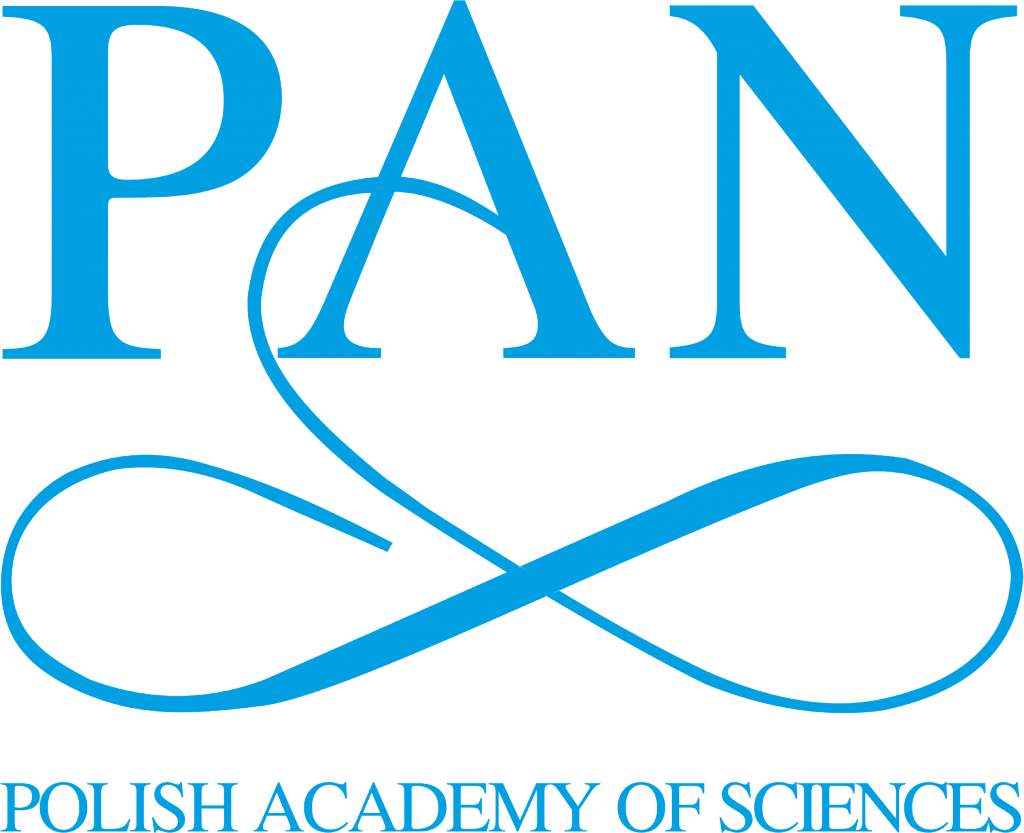
Polish Academy of Sciences (PAS), as the leading scientific institution in Poland, carries out comprehensive research activity aimed at the development, promotion, integration and popularization of science and the development of education, and also the enrichment of national culture. The Academy achieves these goals by carrying out advanced research of strategic importance for the development of science and economy, by organizing interdisciplinary research teams involved in the concentration of modern research apparatus, integrating Polish scientific community, educating academic staff, and by innovatively utilizing the results of scientific research, also in cooperation with economic entities, and by organizing scientific conferences and participating in science popularization events.
Structure of PAS unites traditional functions of autonomic scientific corporation with an academia that directly realizes research goals. This combination provides the possibility to create science by personal research involvement of PAS members affiliated in different research facilities. The corporation of scholars of the Academy includes:
• scientific committees, that on the grounds of their composition constitute the most representative scientific circle in the given discipline;
• task force committees, that are appropriately selected groups of experts, established to accomplish certain research tasks
• national committees, established in order to maintain and develop the cooperation with international scientific organizations,
• divisions, participating in the performance of tasks of the Academy within the scientific fields included in its scope, by the involvement of its members in the works of branches of the Academy, scientific committees, task force committees, and the boards of experts of the research institutions,
• territorial branches, established in order to perform the tasks of the Academy in a particular region of Poland, that above all integrate the academic life in the region of Poland in question,
• Scientific institutes, that are the basic organizational units of the corporation.
Gathered around departments, the institutes conduce international and internal research, both basic and applied, organize conferences, symposia and scientific lectures, provide financial services and perform the transfer of technology.
Recently, Polish Young Academy functions in the structure of PAS. Its tasks are centred around the activity for the activation of the young scientific community, by, among others, presentation of opinions and programmes related to the scientific issues, the organization of debates, discussions and scientific conferences, and the dissemination of scientific results.
Polish Academy of Sciences is also engaged in the publishing and expertise, provides access to the library, museum and archival stocks, organizes conferences, exhibitions and popular science lectures.
As the publishing activity, PAS ensures the continuity in the publishing of the scientific publications and journals most important in given specializations, a part of which are available in open access on the Academy’s web page. Science popularization activity involves, above all, open popular science lectures “Wszechnica”, participation in picnics and science festivals, nights of museums or book fairs; concerts and exhibitions are also organized periodically. PAS research units are actively involved in the preservation and restoration of material culture heritage and natural resources in Poland and abroad. The Academy’s institutions possess in their collections, among others, printed literary treasures, dating back to 15th century, that include early editions of Hevelius’ and Copernicus’ works and Marie Skłodowska Curie’s or Albert Einsteins’ letters. Biological collections, comprising unique plants and seed banks, are also not without significance.
For outstanding achievements, the Polish Academy of Sciences grants: Medal of the Polish Academy of Sciences, Nikolas Copernicus Medal, Stefan Banach Medal of the Polish Academy of Sciences and the Polish Academy of Sciences Statuette.
More information at: pan.pl
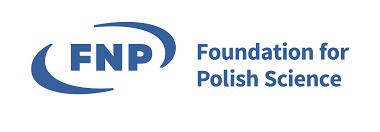 Foundation for Polish Science (FNP) has been in operation since 1991. It is a non-governmental, non-political, non-profit institution and the largest source of science funding in Poland outside of the state budget.
Foundation for Polish Science (FNP) has been in operation since 1991. It is a non-governmental, non-political, non-profit institution and the largest source of science funding in Poland outside of the state budget.
Foundation’s mission is to support outstanding scholars and research groups and to back innovative projects and the commercialization of research results.
The Foundation is offering prizes, scholarships and subsidies for scientists of any age, at all career stages, irrespective of the represented field of science.
Operating rules of FNP:
• to offer support directly to scholars and research groups
• all subventions, prizes and scholarships are awarded on the basis of a competition
• scientific excellence is the most important criterion in awarding of support
• assessment of the achievements of participants in the Foundation’s competitions is made by Polish and foreign scientists recognized in their field (peer-review method)
• the support is awarded according to the “Hard money” principle (strict accounting procedures for funding awarded)
The Foundation actively supports and promotes scientific mobility and international research cooperation, and many FNP laureates achieve international success. FNP collaborates with over 45 foreign scientific institutions and organizations. We are a member of European Foundation Centre (EFC) and Science Europe.
Foundation’s statutory activities are funded from its own resources, including donations of 1% of income taxes, private donations and European funds. In 2008, the Foundation began the realization of programmes founded by the European Regional Development Fund under the Operational Programme Innovative Economy, and in 2011 it started the SKILLS project, financed from the Operational Programme Human Capital funds. Both ended in 2015. At the end of 2015 and at the beginning of 2016, the Foundation launched new projects financed from the Operational Programme Smart Growth: International Research Agendas, TEAM, TEAM-NET, TEAM-TECH, FIRST TEAM, HOMING and POWROTY.
Detailed information can be found on www.fnp.org.pl
Partners
Wrocław University of Science and Technology was established in 1945, mainly as a result of the involvement of the academic staff of the now-defunct Technical University of Lviv and the Jan Kazimierz University in Lviv, who adapted the destroyed buildings of the German School of Technology – Technische Hochschule.
Today we continue the tradition of these prominent Polish universities and develop in close cooperation with the leading companies of Lower Silesia. We are one of the largest and best technical universities in the country, one regularly ranked among the best in the national rankings.
The first rector of the then merged University of Technology and University of Wrocław was Professor Stanisław Kulczyński (1945-1951). Since then, the university has already seen as many as fourteen successors of the eminent academic. Currently, the tertiary institution is governed by Professor Arkadiusz Wójs, whose term of office will last until the end of August 2024.
Our Mission and Vision
The mission of the University is to educate students of all cycles of higher education and students of lifelong learning mode in close connection with scientific work as well as research and development projects carried out by the University in cooperation with prospective employers of PUT’s graduates and in continuous contact with society. Our visionary goal is transformation of PUT into the country’s leading technical university, known and acknowledged in Europe, an important and sought after partner of educational establishments of the world, a university that can offer high quality education and the world-class scientific work and research and development projects.
European University
Today Poznan University of Technology offers education at 10 faculties which provide students with a choice of 27 fields of study. More than 20,000 students of I and II cycles, Phd students and participants of post-graduate programmes receive education here. More than 1,200 academic staff care about their education. Implementation of PUT’s mission enables the vision to become reality – to be one of the best technical universities in Poland, which aspires to become an equipollent partner of other European schools in terms of education quality and high level of scientific research. PUT was the first Polish institution of higher education to become a member of CESAER (Conference of European Schools for Advanced Engineering Education and Research) – a European organisation that brings together the best technical schools. It is also a member of SEFI (Societe Europeenne pour la Formation des Ingenieurs), EUA (European University Association), ADUEM (Alliance of Universities for Democracy) and IAU (International Association of Universities).
Science
Poznan University of Technology is an important centre of scientific research. The proportion of funds for research projects grows year by year. The strong point of the University is its academic staff. Their achievements in science and numerous publications make a significant contribution to modern technical sciences. Many young members of academic staff and Phd students receive academic grants allowing them to improve their skills and gain new experience abroad. The University’s researchers receive the most prestigious state awards for achievement in science. The Foundation of Polish Science, which awards the best Polish scientists, three times honoured professors of our University with the so-called “Polish Nobel Prize” – in 2000 it was awarded to professor Jan Węglarz, in 2005 to professor Roman Słowiński and in 2011 to professor Elżbieta Frąckowiak.
Education
PUT’s education offer is modern, rich and specifically adapted to meet requirements of employers – both Polish and foreign ones. The University offers more than 100 specialisations within its 27 fields of study. Students choose to study at PUT attracted by high standards of education, thoroughly trained and experienced academic staff and a good possibility to realise fully their interests both in science and beyond as well as by friendly atmosphere. We are really proud of our students who successfully participate in international competitions and contests, in science circles and student organisations.
Main sponsor
The organizers of PSN 2022 gratefully acknowledge the financial support provided by the Polish Ministry of Education and Science (Ministerstwo Edukacji i Nauki) under the “Doskonała nauka – Wsparcie konferencji naukowych” program, grant no. DNK/SP/514128/2021.
